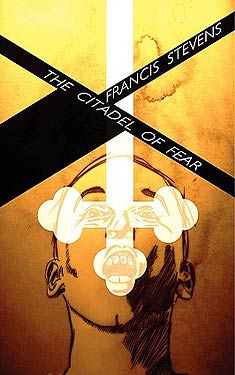Forays into Fantasy: Gertrude Barrows Bennett’s The Citadel of Fear
Scott Lazerus is a Professor of Economics at Western State Colorado University in Gunnison, Colorado, and has been a science fiction fan since the 1970s. The Forays into Fantasy series is an exploration of the various threads of fantastic literature that have led to the wide variety of fantasy found today, from the perspective of an SF fan newly exploring the fantasy landscape. FiF will examine some of the most interesting landmark books of the past, along with a few of today’s most acclaimed fantasies, building an understanding of the connections between fantasy’s origins, its touchstones, and its many strands of influence.
 In the midst of the Women of Genre Fiction Challenge, I’d like to direct your attention to Gertrude Barrows Bennett—possibly the most important female writer of speculative fiction that you’ve probably never heard of. Her sustained run of fantasy fiction published between 1917 and 1923—around a dozen stories, including five novels—have led to a growing acceptance of her importance to the history of the genre, following decades of neglect.
In the midst of the Women of Genre Fiction Challenge, I’d like to direct your attention to Gertrude Barrows Bennett—possibly the most important female writer of speculative fiction that you’ve probably never heard of. Her sustained run of fantasy fiction published between 1917 and 1923—around a dozen stories, including five novels—have led to a growing acceptance of her importance to the history of the genre, following decades of neglect.
Bennett (1884–1948) turned to writing when her journalist/explorer husband died while on an expedition, soon followed by her father, leaving her with a newborn daughter and invalid mother to support. She seems to have stopped writing after her mother’s death. Following her disappearance from public view, and prior to the idea being debunked in 1952, it was quite widely believed that Francis Stevens—the pseudonym under which Bennett’s work was published—was actually a penname of A. Merritt, probably the most popular and influential fantasy writer of the first third of the twentieth century (though much less well-known today). It turns out; however, that the similarities of their writings, which led readers to assume “Stevens” was Merritt, were quite likely the result of Bennett’s own influence on Merritt, who acknowledged his admiration for her works, and the inspiration he received from them. (Mention has also been made of H. P. Lovecraft’s endorsement of her work, but this story seems to have been apocryphal.)



















 Full Details
Full Details

